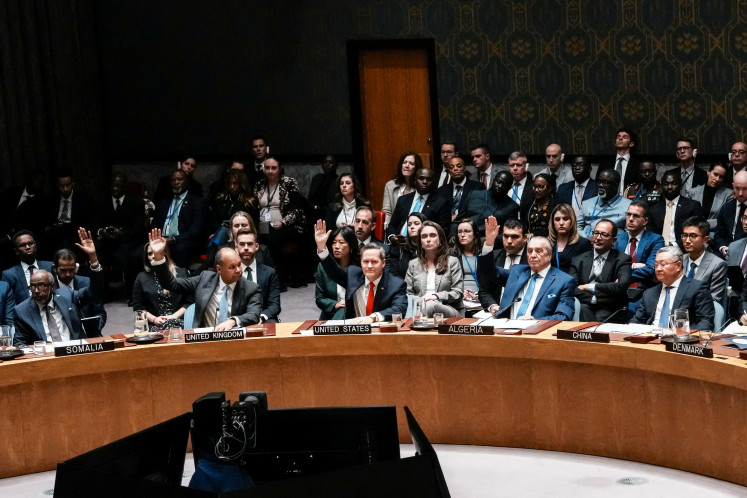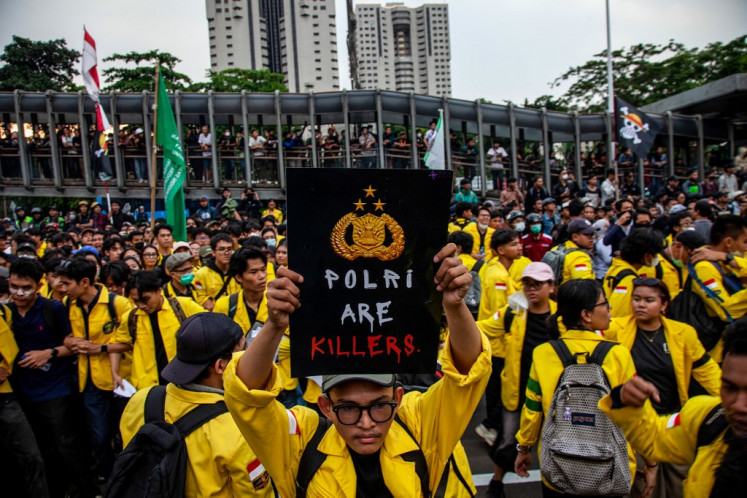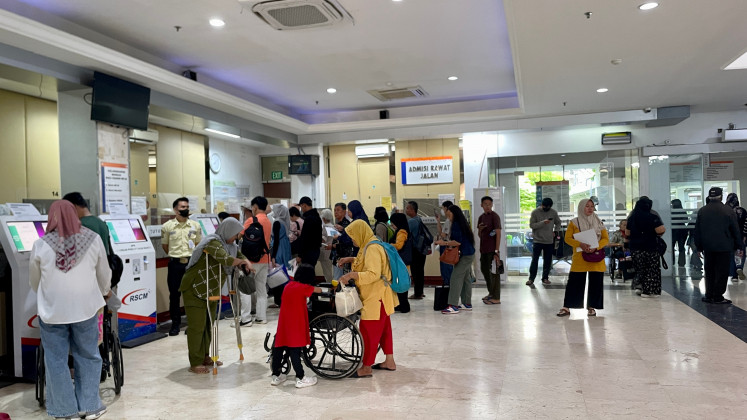Popular Reads
Top Results
Can't find what you're looking for?
View all search resultsPopular Reads
Top Results
Can't find what you're looking for?
View all search resultsIslamic parties at an impasse, need reform to avoid the worst
There are two interesting facts about Islam in Indonesia
Change text size
Gift Premium Articles
to Anyone
T
here are two interesting facts about Islam in Indonesia. First, more than 87.18 percent of the country’s total population is Muslim. Second, there has been an escalation of Islamic expression since the 1990s, such as women wearing veils, laws and bylaws influenced by Islam, the publication of Islamic books and the proliferation of Islamic banking, clinics, housing complexes and dormitories.
But these facts are not reflected in the political orientation of voters. For example, all Islamic parties won less votes and received less of the national vote than all secular-nationalist parties in three consecutive general elections after the New Order era.
According to General Elections Commission (KPU) data, the three major “pure” Islamic parties or those founded based on Islamic principles, which are the United Development Party (PPP), the Prosperous Justice Party (PKS) and the Crescent Star Party (PBB), together obtained only 17.2 percent of the vote in the 1999 general election.
If combined with the vote secured by the National Mandate Party (PAN) and the National Awakening Party (PKB), which can be assumed to be representations of Muhammadiyah and Nahdlatul Ulama (NU), the Islamic parties gathered 36.2 percent of the total vote.
In 2004, the major “pure” Islamic parties won 18 percent of the vote and the combined tally of all Islamic parties (including PAN and the PKB) was 25.9 percent.
In 2009, the performance of Islamic parties stagnated at about 26 percent. These figures compare unfavorably to the combined achievements of the major secular-nationalist parties: the Golkar Party and the Indonesian Democratic Party of Struggle (PDI-P) secured 58.5 percent of the vote in 1999 and 47.4 percent in 2004, whereas in 2009, the PDI-P, Golkar and the Democratic Party secured and 49.3 percent.
The data shows a paradox: Religiosity has increased at the social level, but at the political level, Islamic parties seem to face an impasse because of their inability to obtain support from Muslims. How is this possible?
Several studies argue that the paradox is a result of the apolitical character of Muslims in Indonesia. Their Islamic orientation is confined to religious practice. This is true to some extent but the argument ignores several important factors.
First, Islam in Indonesia is diverse both in religious tradition and political orientation. This is different from the situation, for example, in Turkey. As a result of Mustapha Kemal Ataturk’s secularization project, the AKP (Adalet ve Kalkinma Partisi) has become the only significant Islamic force in Turkey (Hadiz, 2011). As the almost undisputed representation of Islamic power, it is easier for the party to obtain the support of Muslim voters. It is no wonder then that the AKP has convincingly won three-straight general elections since 2002.
Second, the economic base of Islamic parties in Indonesia is weak, whereas such as base is very important in maintaining and expanding their constituency.
A strong economic base would make it easier for these parties to carry out populist programs that might garner the support of the people. The AKP in Turkey and Ikhwanul Muslimin (IM) in Egypt provide all kinds of social services for the people, such as education and health.
Having a strong economic base, in the form of support from pious sections of the middle-class and the business community, enables them to provide these social services (Hadiz, 2011).
Third, Islamic parties in Indonesia have failed in the last 20 years to develop positions that could be supported by non-Muslim members of the electorate. The majority of Islamic figures are “parochial” in type: Their scope of influence is limited and only oriented to their own communities. There have been individuals who tried to “cross communal borders”, but they have failed to get significant support from Muslims themselves.
Fourth, members of the House of Representatives, ministers, regents and governors from Islamic parties have performed inadequately in their roles, thereby diminishing public support for them.
There is no “superior product” that Islamic parties can “sell” in the democratic political market. A number of successful local government heads, such as the mayors of Surakarta (Solo) and Surabaya, and the regent of Jembrana are not from Islamic parties.
If the performance of the Depok mayor (who hails from the PKS) was as good as the Solo mayor, or if the growth of the Indonesian agriculture sector (which is presided over by a PKS minister) was as good as that in Thailand, then maybe the PKS vote would not be stagnant at 7.9 percent, the level it achieved in the 2009 general election.
Should Islamic parties fail to reform themselves, support for them will decrease further. A survey predicted that Islamic parties would only get 15.7 percent of the vote in the 2014 general election. But the most important thing is that Muslims have a means to channel their aspirations through Islamic parties, secular parties and various kinds of democratic mechanisms.
Islamism can be a serious problem if the aspirations of Muslims are blocked and they are tempted to take non-democratic channels. And indications of this kind of Islamism have appeared in recent years. Many Muslims who give their support to Islamist groups opposing democracy take up non-democratic ways of fighting for their interests.
The writer lectures in the department of sociology at the University of Indonesia, Depok, West Java.










